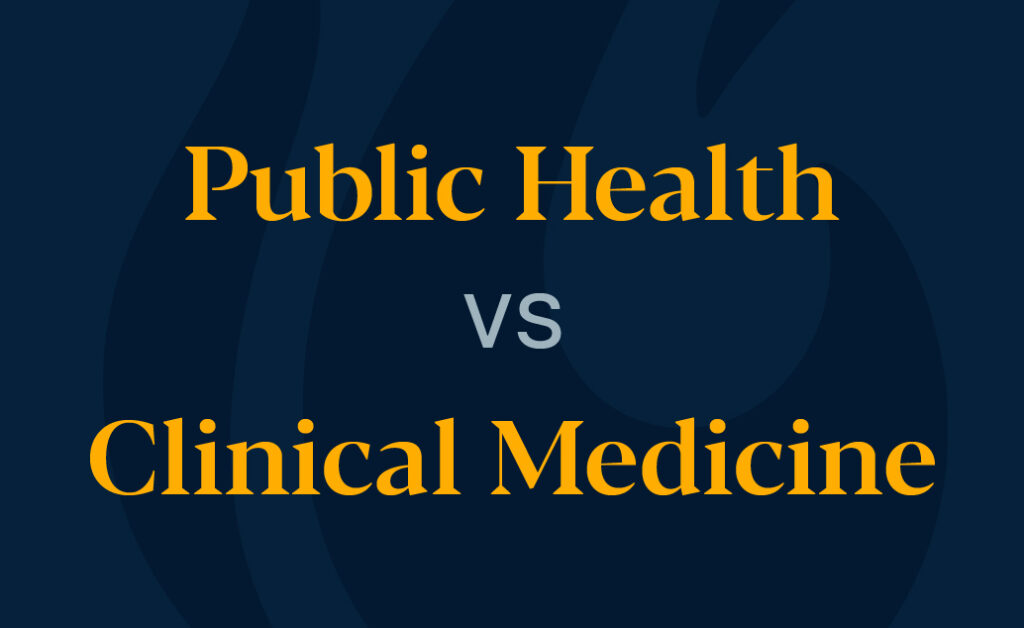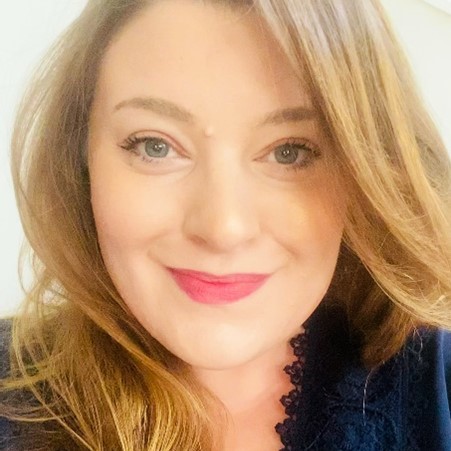
Public health and clinical medicine comprise a large fraction of the U.S. healthcare system. Though they seem like interchangeable fields, they are quite different from a variety of perspectives. Let’s discuss what makes each field unique and how they connect.
How Does Public Health Differ from Clinical Medicine?
A key difference to remember is that public health is concerned with the health of entire populations, whereas clinical medicine focuses more on the individual level. Frontline workers, like the doctors and nurses who interact with patients, are considered clinicians in the field of clinical medicine. In contrast, you’ll typically find data analysts, investigators and researchers make up the public health system. But despite the differences, these two spheres – entire populations and individual care, public health and clinical medicine – work in tandem to maintain a well-rounded healthcare system.
How Does Each Area Contribute to the Healthcare System?
When it comes to clinical medicine, the answer might seem obvious. If a person falls and breaks their arm while climbing a flight of stairs at a parking garage, the clinician is responsible for treating the broken arm. Clinical medicine interventions in this case might include pain management, orthopedic surgery and/or physical therapy.
The public health professional is responsible for analyzing available data that shows how many people in a specified population have fallen and broken bones while climbing stairs at parking garage locations. They might interview the patient to better understand any socioeconomic factors that could have contributed to the fall, such as rushing to catch a train due to limited train times to their workplace. Further, they might investigate the scene of the injury to look for hazards that could be removed or fixed by contacting the owner of the parking garage and/or a public safety office.
Both public health professionals and clinicians work to mitigate risks to our health. What often differs is when the impact is felt. The field of public health works to prevent health risks, while clinical medicine treats the health issues that have already occurred.
What Education Do You Need to Work in Public Health or Clinical Medicine?
To work for either field, there are different degree programs and pathways to get there. The following chart shows each potential credential with its corresponding field. There are more programs and specialties related to each field, but these are the highlights.
| Public Health | Clinical Medicine |
| Doctor of Public Health (Dr.P.H.) – terminal degree designed to prepare students for leadership positions | Doctor of Medicine (M.D.) – medical degree earned to practice medicine by diagnosing and treating patients |
| Doctor of Education in Public Health Education (Ed.D.) – terminal degree for those interested in teaching and/or holding administrative roles in higher education | Physician Assistant (P.A.) – degree for healthcare professionals who work alongside doctors to provide medical treatment to patients |
| Master of Public Health (MPH) – graduate degree that trains students on how to improve and maintain health at the population level | Nurse Practitioner (N.P.) – advanced nursing degree that provides the credential for direct primary and/or specialty care for patients |
| Master of Public Policy (MPP) – graduate degree that prepares students for policy analysis and evaluation | Bachelor of Science in Nursing (BSN) – undergraduate degree in nursing |
| M.Ed. in Health and Wellness Education (M.Ed.) – graduate degree that trains students on how to teach or create curriculum for health education | Registered Nurse (R.N.) – license in nursing for those who work with doctors and other healthcare workers to provide patient care |
Altogether, both public health and clinical medicine are fields of healthcare that allow individuals who work in them a chance to make an impact in improving the lives of their community.
American College of Education offers a variety of fully online programs for those who want to build a career in either public health or clinical medicine. To learn more about our programs, click on their names in the chart above.

